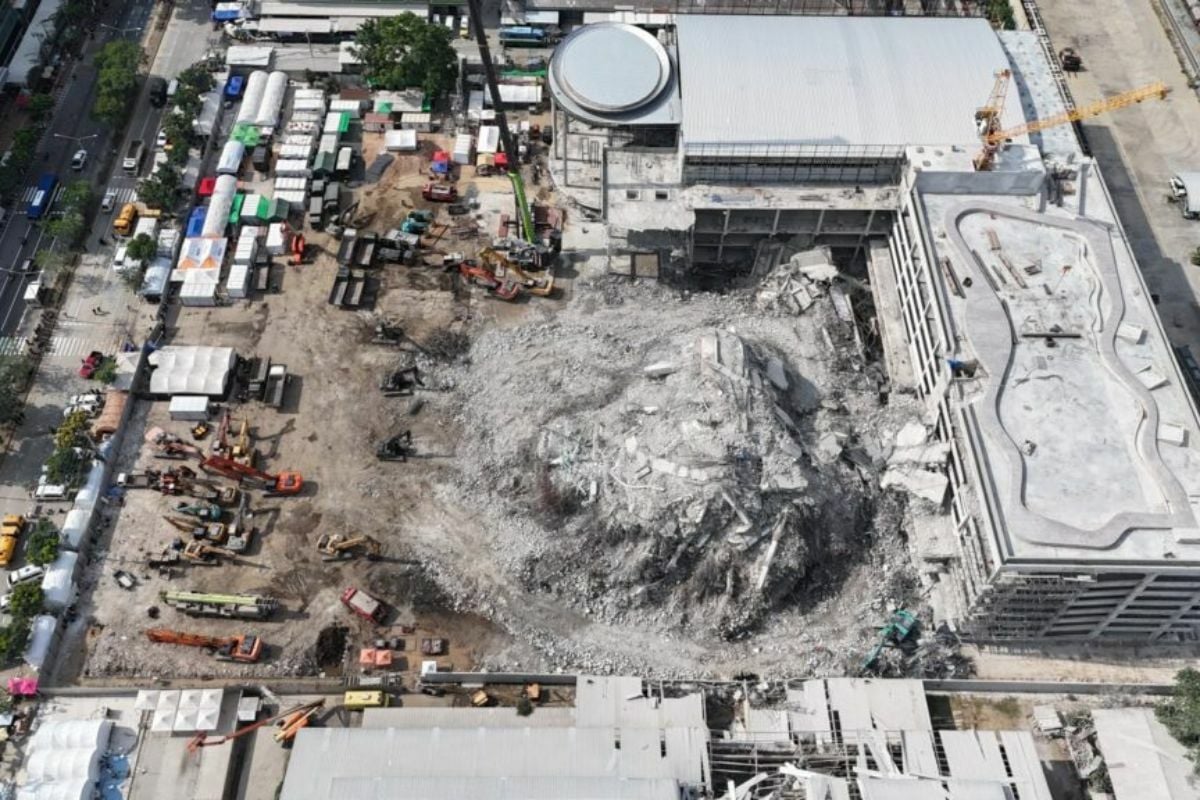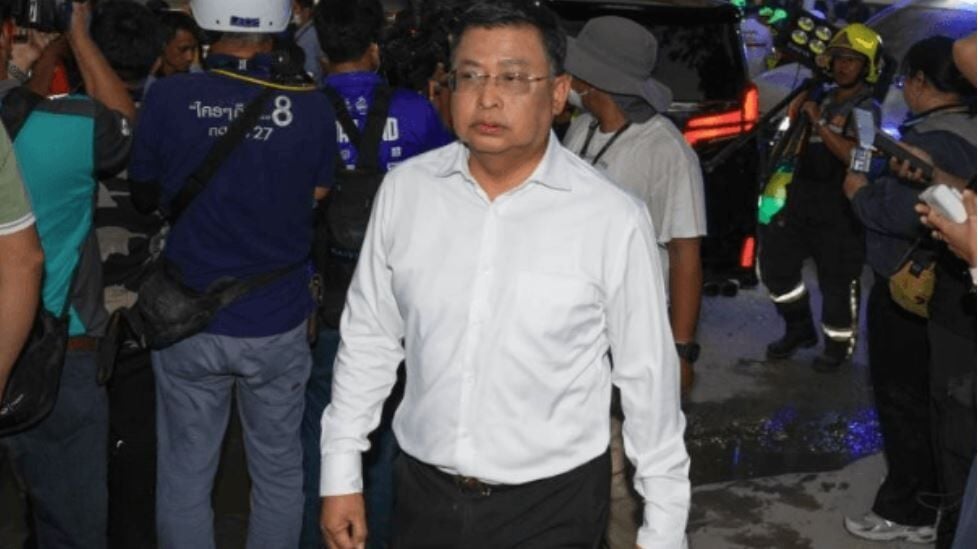Lawmakers grill auditor over quake-hit billion-baht building collapse

What started as a natural disaster may have shaken loose something even bigger — the truth behind a billion-baht state building in Bangkok that crumbled under pressure.
Thailand’s House Anti-Corruption Committee has summoned Auditor-General Monthien Charoenpol to appear before Parliament on April 30, following the dramatic collapse of the State Audit Office (SAO) building during a powerful earthquake in Myanmar on Friday, March 28.
The committee is now investigating whether corruption and cost-cutting played a role in the structural failure.
Pheu Thai MP Chalard Karmchuang, who chairs the committee, said the probe will examine whether substandard materials were used and whether the construction methodology was properly approved by experts.
He raised eyebrows by revealing the 2 billion baht project was not funded through the Budget Bureau but instead through residual funds accumulated by the SAO over several years.

“If the budget had come from the Budget Bureau, Parliament would likely have rejected the project due to the high cost,” Chalard explained. “The flaws in the building may never have been discovered if not for the earthquake.”
Chalard also pointed to past questionable spending by the SAO, noting a 2020 purchase of 2,000 landline telephones worth 13.6 million baht, even though most government officials already use mobile phones.
He admitted that many state agencies often find creative ways to justify unnecessary and overpriced procurements, calling it a systemic issue within the Thai bureaucracy.
Meanwhile, People’s Party MP Rukchanok Srinork blasted former Auditor-General Phisit Leelavachiropas, who bizarrely attributed the collapse to poor Feng Shui. In a scathing Facebook post, Rukchanok rejected the claim outright.

“The SAO building didn’t collapse because of Feng Shui or the earthquake,” she wrote. “It collapsed because of deeply entrenched corruption throughout every level of government.”
Rukchanok accused the SAO of spending lavishly on luxuries like a mini-theatre, imported carpets, and executive furniture, while slashing structural costs by altering designs and using inferior materials, reported Thai PBS World.
The MP also condemned the government for its failure to take meaningful action against corruption.
“We should stop accepting that corruption is OK.”
With public pressure mounting and scrutiny intensifying, all eyes are now on the April 30 hearing and whether it will reveal more cracks in the foundation of government accountability.
Latest Thailand News
Follow The Thaiger on Google News:


























